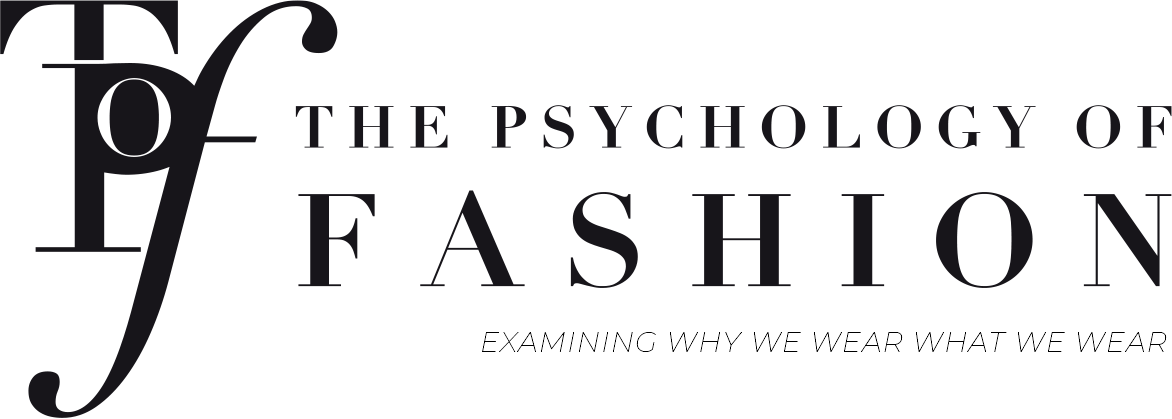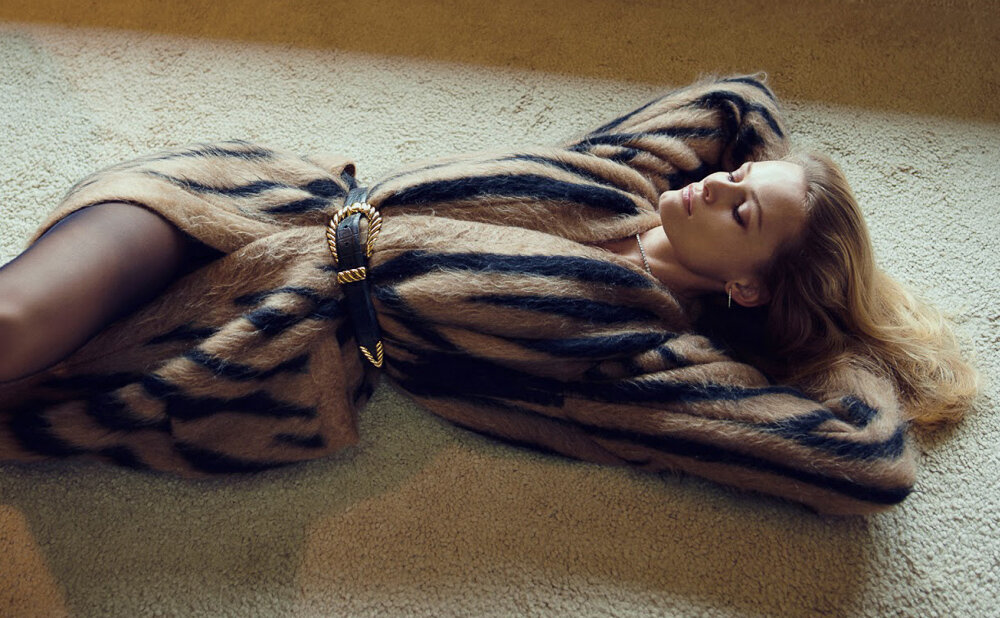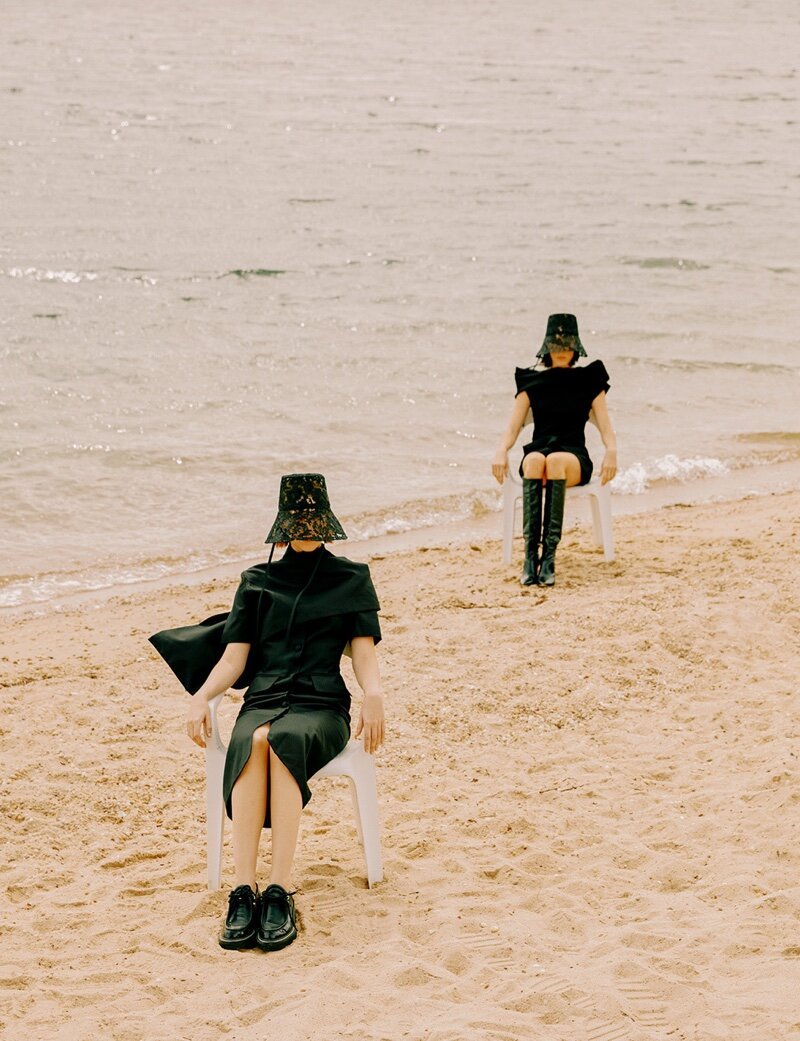Writing for The Psychology of Fashion has been exciting because it was one of the first places to help me examine the relationship between personal style and fashion at large. Previously, personal style had always registered as something too deeply idiosyncratic to be examined within the larger, shared, context of fashion. What seemed like a contradiction had me doubtful, until I approached the relationship with a deep-dive into my own closet and psychological landscape. By using the Big 5 personality test adapted for our sister site, PSYKHE, I was able to unpack my personal style via psychological profile. The results bridged the contents of my wardrobe to how I feel about myself and the world around me, which is a reconciling I couldn’t have achieved without the help of an unbiased third party. Without further-ado, the results of and my responses to the Big 5 personality test:
Openness, as expressed by Gigi Hadid in this Chloé ensemble for Vogue US.
Openness Score: 70%
“Openness refers to how open you are to venturing beyond your comfort zone, how much you prefer variety and diversity, and how much you seek out new, unfamiliar experiences, embrace unconventional ideas, travel to new destinations, are interested in different cultures and change up your routine.” Was this result surprising? Not at all. My passion for travelling and need to be creative is entirely apparent in life choices; from moving to new cities, to my Bachelor's degree in Literature and Creative Writing. I associate the bohemian style attributed to high openness scorers to how I dressed when I was beginning to come into my own. Leaning more toward basics and conventional styles was something I did naturally as I matured; evidenced by the white button-down shirt I wore to the office today. True to openness form though, I paired it with a bright yellow headscarf I picked up at a kiosk in Bellagio. Old habits die hard. Overall, this shows how the test considered the changing nature of maturity, and how gauging one’s style can be an adequate tool for analyzing personal growth.
Conscientiousness as portrayed in Ralph Lauren’s Holiday 2019 campaign.
Conscientiousness Score: 54%
Officially, “Conscientiousness refers to the tendency to be dutiful and goal-oriented”. Honesty hour: I’ve always considered myself to be a bit of a paradox - a controlling free-spirit. I have also consistently laughed off this part of me, as it seemed absurd and contradictory. After taking this test I’ve come to realize just how valid and a part of my identity this contradiction is (among many). I identified with both sides of the conscientiousness spectrum and resonated with the fashion tips designed for those looking for a more balanced variation between the two. A conforming nonconformist all the way, I’ve been sporting babydoll dresses with blazers since adolescence.
Extroversion, as depicted by India Graham for Harper’s Bazaar Arabia.
Extroversion Score: 70%
The Big 5 says: “Extroversion relates to whether you gain energy from outside or inside yourself.” I scored on the high percentile for extroverts, but identified with characteristics of introverts as well. I’ve attributed this to changing attitudes I’ve adopted in my in my own life, which are a reflection of the situations I’ve been in, and the relationships I’ve cultivated over the past few years. I find harmony in the confliction between my introverted and extroverted sides by balancing incorporating my outgoing styles with self-preservative styles throughout the week. To me, this looks like indulging in standout pieces on the weekends, and taking on more lowkey, simple looks geared for comfort on business days. Sometimes there’s crossover between the two, for example wearing the bomber jacket from a reflective tracksuit usually worn out on a weekend is sometimes a great way to brighten up the week. It’s also easily removed if deemed too extreme to tolerate. Alternatively, black leather pants worn during the week can easily be facilitated into a weekend setting.
Liya Kebede’s smile exudes agreeableness in this photoshoot for her brand LemLem.
Agreeableness: 66%
“Agreeableness relates to how much you care about getting along with others.” Apparently, I scored moderate-high, so this result made a ton of sense to me. I love keeping the peace, but also keep my threshold for bullsh*t at a minimum. Working in tandem with my balanced conscientiousness score, I’m the type to wear a friendly pastel pink Betsey Johnson dress, with don’t-mess-with-me fishnets and combat boots.
Neuroticism Score: 62%
“Neuroticism refers to how prone you are to negative emotions.” My own neuroticism is something I often feel unwittingly neurotic about and it’s because of this trait’s cerebral quality that it’s the perfect personal style guide for this context. Although I’m not an exceptionally high scorer – 62% falls into the lower end of moderate-high - I found that dressing in a fierce way makes me feel calmer and more control in social settings; despite cringing every time I hear the clichéd phrase “dress to impress.” The characteristically neurotic draw toward dark clothes and solid colors over fun prints offsets, and explains, the discordant reaction I had to the extroversion category. Neuroticism illuminated an alternative reason for wanting to dress plainly, like an introvert, despite having a high extroversion score. It’s important to consider the combination.
Fierce garb as depicted by Miriam Haney and Alix Angjeli for Vogue Portugal.
This ability to offer rationale for confusing scores between categories is something that makes this test so uniquely conversational. The results act as a thread, weaving psychology and personal style together in the larger context of fashion. Often times, how you feel manifests itself in your physicality, so similar to the saying “you are what you eat,” how you feel is how you dress.
While going through my results, I was able to construct a photomosaic out of memories from favorite outfits and experiences. In turn, I gained a synthesized picture of my being that helped to simplify the otherwise overcomplicated task of trying to wholly understand one’s identity. The test was an effective micro-method of examining psychology's impact on fashion as well as my own motives for dressing. It’s also great way of moving the needle through fashion choices as I move forward. By adopting the fashion styles typical for the personality characteristics one scored lower in, it’s possible to embody the qualities one desires to see more of in themselves; positively effecting change in their personal life. Adulting may soon call for more conscientiousness from me, and I wouldn’t hesitate to invest in a few new blazers.
Find out your own scores here.


















In the world of post-pandemic dressing, one word has taken social media by storm: cheugy (pronounced: chew-gee). In the worlds of fashion and lifestyle, cheugy describes a look, a thing or a person that’s considered out of date.